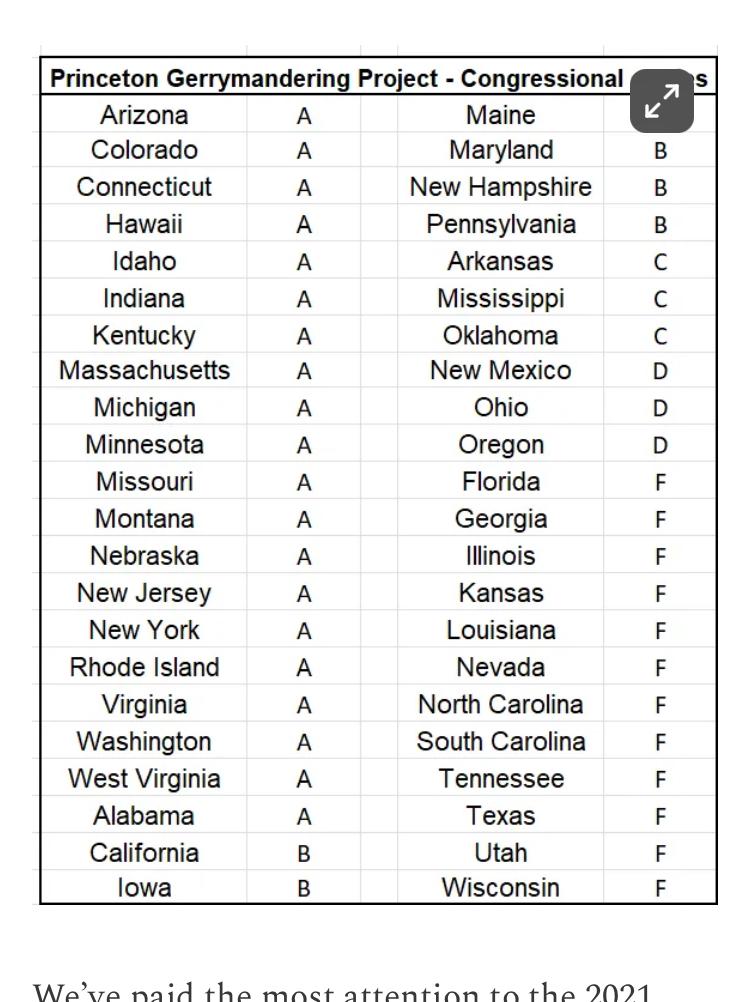Both Democrats and Republicans in the U.S. will claim that their opponents are the worse perpetrators when it comes to gerrymandering. Sam Wang and his team at Princeton University took a look at the data and graded states for their congressional and legislative redistricting. Here's his blogpost explaining the method, plus, at the second link, the results. "From this systematic comparison across every state, we learned that there is a very particular way that districting can be fair: take the power away from legislators."
Local politicians cannot set the borders based on personal preference or makeup of the population.
But then, the US has Electoral Colleges, because citizens can’t be trusted to vote for ‘right’ person.
And result is him.
"In about half the states, citizens have the ability to amend the constitution and form an independent redistricting commission. In some states like Illinois, extreme gerrymanders can be prevented in this way.
"Such a route is not available in states like Texas, where no laws govern congressional redistricting whatsoever — truly, Texas is the Wild West. The only way Texas will ever get better districting is through federal law. Until then, the only justice is rough justice - which is why California is attempting to balance the offense with an equally-sized counteroffense."
Open Science
We are a network of scientists, developers and organizations building the next generation of digital spaces for open science.
